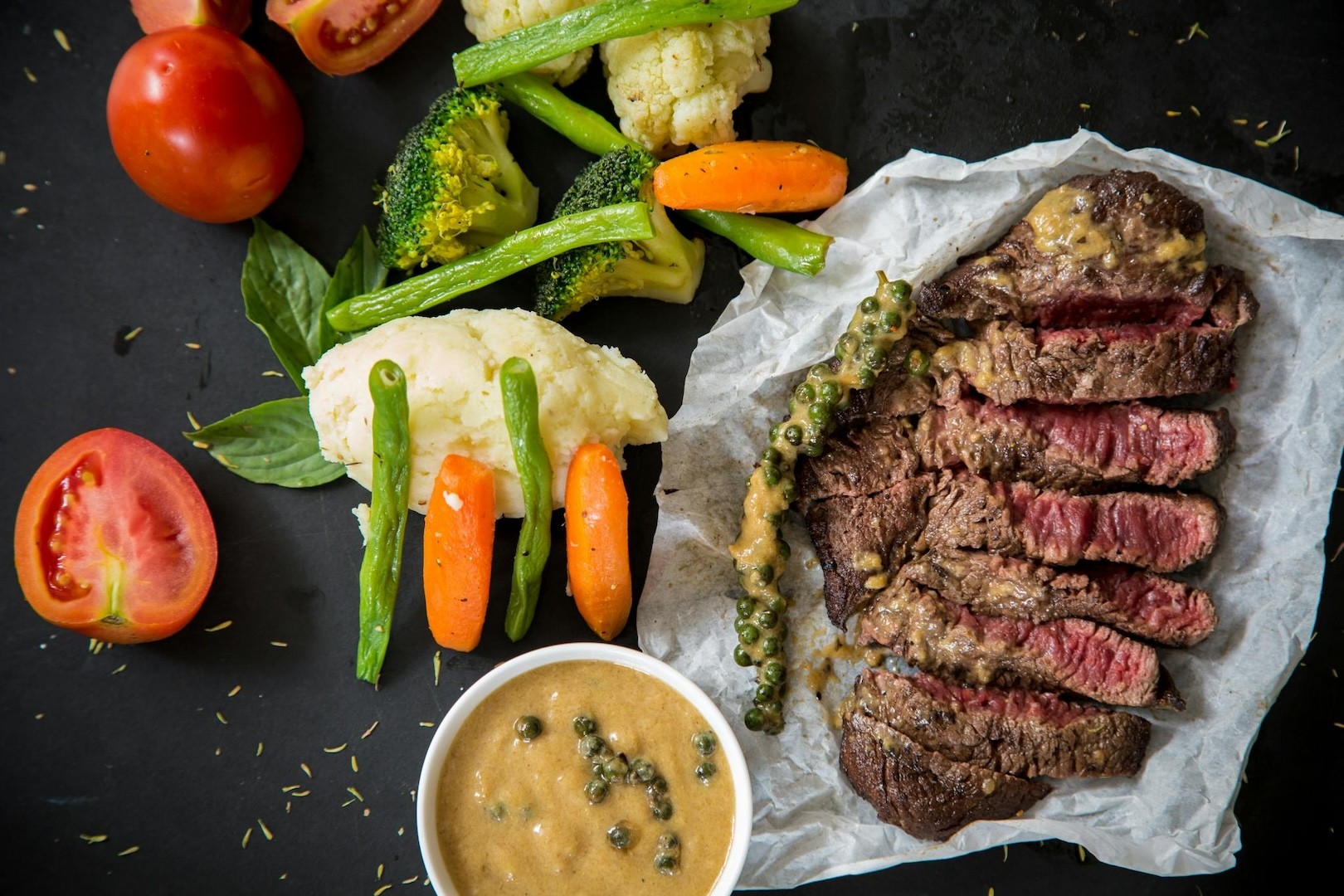
Protein is a widely discussed topic in nutrition, especially when it comes to athletics and muscle building. While it is important to eat enough protein to gain muscle, there is often confusion about how much protein one should actually be eating.
Let’s first discuss how the body breaks down or metabolizes protein. While mechanical digestion of the chicken breast you had for dinner started the second you started chewing, chemical digestion does not start until it hits the stomach. The stomach is very acidic and can denature, or break down, the protein using an enzyme called pepsin and hydrochloric acid, which is naturally found in the stomach (and is the culprit behind heartburn). From here, what was previously a chicken breast moves into the small intestine, where the pancreas lends a helping hand to make it less acidic so it does not damage the intestine. The pancreas also releases a bunch of enzymes to help with digestion. The small intestine houses many hormones that along with the previously aforementioned enzymes from the pancreas, further break down the food until it is usable by the body. This is also the stage where the body extracts all the nutrients it needs to help your body function properly. That chicken breast has now been broken down into small amino acids which can be used to make new proteins to aid with muscle growth and repair, amongst other things.
However, the body only makes so many new proteins at a time. It also cannot store amino acids and what isn’t needed is either converted to triglycerides or to a molecule called acetyl CoA (which then goes through the Krebs cycle and eventually becomes glucose). Alternatively, it can be broken down further into nitrogenous wastes to be eventually disposed of. It is through this process that eating extremely high amounts of protein can become toxic to the body. While the mechanism of this is beyond the scope of this blog post, it is important to remember that anything in excess can be unhealthy.
The topic of how much protein should be eaten at each meal to build muscle is widely debated. Many experts have settled on about 20-30g per meal. Nutrition is very individualized and the total amount of protein needed per day will differ from person to person, partly due to one’s activity level. In an average person who is more sedentary 0.8 gram (gm) of protein per kilogram (kg) of their body weight is often recommended to maintain their muscle mass. There are 2.2 pounds (lbs) per kg. So if a person weighs 120lbs they would divide 120 by 2.2 to get 54.5kg, then multiply that by 0.8 to end up with approximately 43.6gm of protein per day. An average person over the age of fifty would increase their protein intake to 1gm/kg of their body weight per day.
If you’re reading this then you are likely a member of PUSH511 and probably need more protein than the average person. Gaining muscle is a matter of protein in vs protein out, we do need an excess to create muscle. The American College of Sports Medicine recommends that a person who is lifting weights regularly or training for a particular race or event consume anywhere from 1.2-1.7gm per kg of their body weight per day. That’s a big range. Other sources recommend an even wider range with the upper level being 2+ grams per kg of their body weight per day. This is where we should look intrinsically and be honest with ourselves about our activity levels. If you are someone who works out every day or even multiple times per day, then you are probably closer to the upper end of the range. If you head to the gym 2-3 times per week but get some light exercise daily then maybe the 1.2gm/kg/day is a better target.
Utilizing the theory that the body can use 20-30g of protein at one time to contribute towards muscle building, and the knowledge that it takes 3-4 hours to digest protein can help us come up with a general meal plan. Take your goal number of protein in grams and divide it by 20-30g to get the amount of meals/snacks with protein you need. Then space these out 3-4 hours. For example, if our 54.5kg person needed 1.5gm/kg of protein per day that would give us ~82gm of protein per day. So eating a meal or a snack with 20-27gm of protein every 3-4 hrs would probably give that person the most bang for their buck when it comes to building muscle.
There are many dietitians trained specifically in sports nutrition that can help you with meal planning for muscle growth. PUSH511 also offers customized nutrition coaching and nutrition challenges to help you reach your goals!
About the Author

I am a Licensed Registered Dietitian with experience in critical care, cardiology, weight loss, allergy services, and food service. I graduated from Penn State University with a BS in nutrition and finished my RD training at the University of Maryland. I am currently in PA school and am looking forward to combining my love of nutrition with medicine. After moving to Baltimore in 2019, I did a trial class at PUSH511 Fitness as I was looking for accountability and to meet new people. When I walked into the gym for the first time, everyone was congregated on one side cheering on a member who was struggling with ring muscle-ups at the end of the workout. It was such an uplifting moment to witness. I left the gym that day in dire need of ginger ale, but also very excited about this amazing and supportive community I had stumbled upon. I am grateful for this opportunity to give back and share my love of nutrition!
Sources:
https://courses.lumenlearning.com/suny-ap2/chapter/protein-metabolism/


